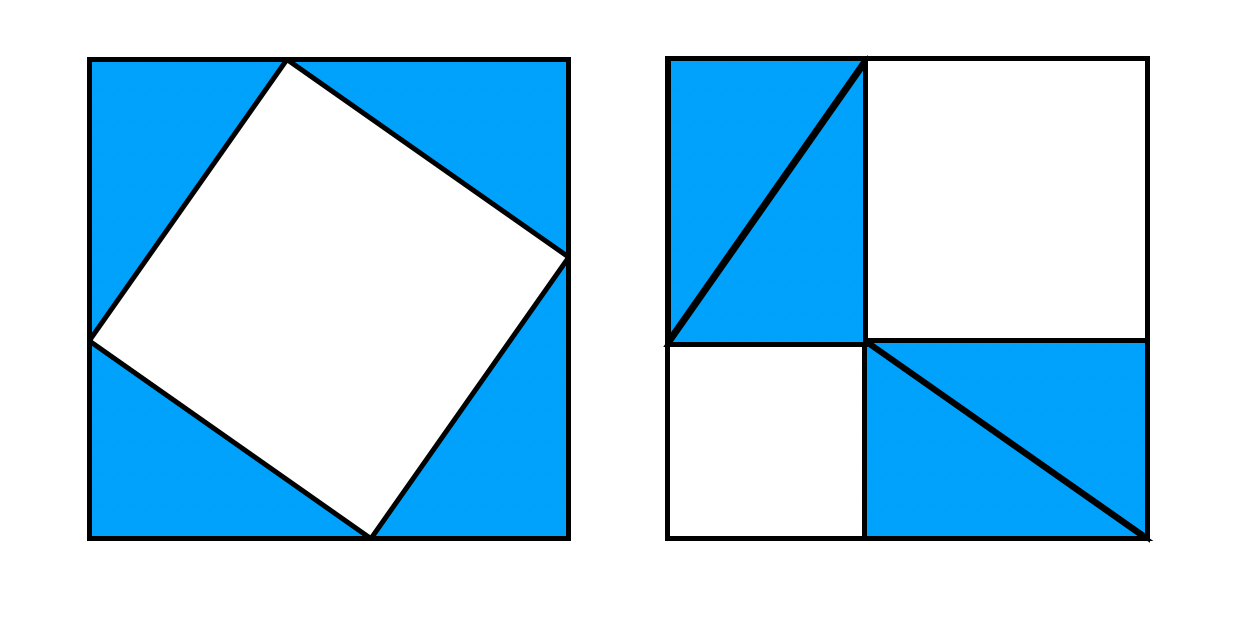Problems
Katie and James take turns replacing the stars with any number of their choice in the following polynomial from left to right: \[x^4 +\star x^3+\star x^2+\star x+\star.\] Katie wins if once the game is over, the resulting polynomial has no integer roots (i.e: no roots which are whole numbers). Does James have a winning strategy if Katie starts first?
Show that if a polynomial \(P(x)\) has an integer root (i.e: a root that is a whole number), then it can’t be that \(P(0)\) and \(P(1)\) are both odd.
Let \(x,x',y,y'\) be integers such that \(x+\sqrt{d}y=x'+\sqrt{d}y'\), where \(d\) is a number that is not a square. Show that \(x=x'\) and \(y=y'\).
Show that if \(u_1\) and \(u_2\) are solutions to Pell’s equation, then \(u_1u_2\) is also a solution to Pell’s equation. What can you conclude about the number of solutions, if there are any?
You have an \(8\times 8\) chessboard coloured in the usual way. You can pick any two adjacent squares (i.e: any \(2\times 1\) or \(1\times 2\) section of the board) and flip the white tiles to black tiles and vice-versa. Is it possible to finish with \(63\) white pieces and \(1\) black piece?
We start with the point \((1,3)\) of the plane. We generate a sequence of points with the following rule: the \(x\)-coordinate of the new point is the arithmetic mean of the \(x\) and \(y\) coordinates of the previous point, and the \(y\)-coordinate of the new point is the harmonic mean of the \(x\) and \(y\) coordinates of the previous points. The harmonic mean of two numbers \(x\) and \(y\) is \(\frac{2}{\frac{1}{x} + \frac{1}{y}}\). Is the point \((3,2)\) in the sequence?
Four black dots are drawn on a whiteboard. On the dots we write the numbers \(10\), \(20\), \(30\), and \(40\) (one number on each dot). We then repeat the following move any number of times: choose one dot, decrease its number by \(3\), and increase the number on each of the other three dots by \(1\). After some number of moves, is it possible for all four dots to show the number \(25\) simultaneously?
Jamie has a bag full of cards, where each card has a whole number written on it. How many cards must Jamie take from the bag to be certain that, among the cards chosen, there are at least two numbers whose average is also a whole number? Recall that to calculate the average of two numbers, we add them together and then divide by two.
The Pythagorean Theorem is one of the most important facts about geometry. It says that if we have a right-angled triangle (i.e: it has an angle of \(90^\circ\)), whose longest side measures \(C\), and its other two other sides measure \(A\) and \(B\):

then \(A^2+B^2=C^2\). There are many proofs of this fact, and some involve dissections! Let’s have a look at the following two ways to dissect the same square:

Can you explain how these dissections prove the Pythagorean Theorem?
Imagine a \(2\times 2\) “Lights Out" board. If every light is off at the start, how can we turn on just one of the squares? Can you notice something about the order in which we press squares?